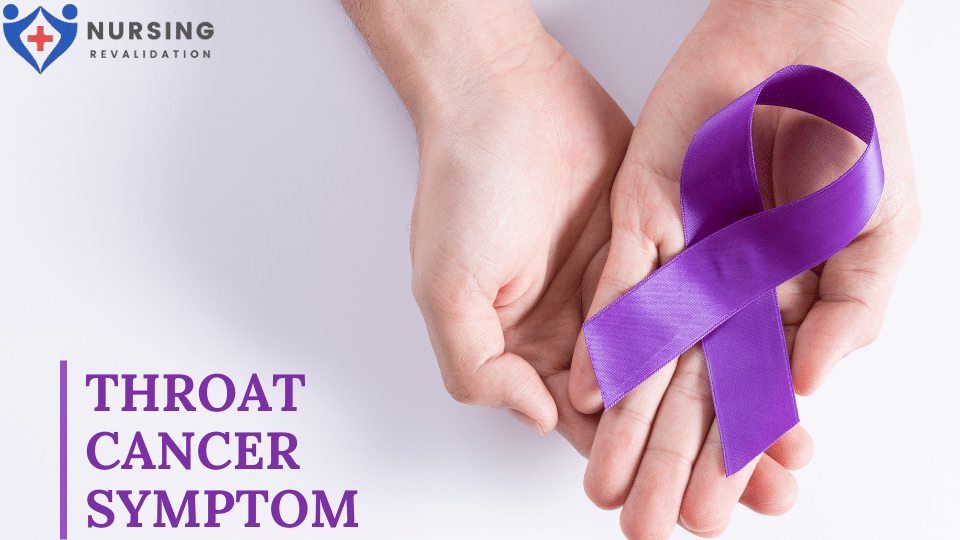Introduction
Throat cancer is a type of cancer that affects the throat, voice box, or tonsils. It is a serious condition that can affect anyone, but it is more common in people who smoke or use tobacco products. Early detection is key in treating throat cancer, as the symptoms can be subtle and easily mistaken for other conditions. In this article, we will discuss the symptoms of throat cancer.
Symptoms of Throat Cancer
The symptoms of throat cancer can vary depending on the location and stage of cancer. Some common symptoms include:
- Persistent cough or sore throat: A persistent cough or sore throat that does not go away after a few weeks may be a sign of throat cancer.
- Difficulty swallowing: Difficulty swallowing, also known as dysphagia, can occur in people with throat cancer. It may feel like something is stuck in the throat.
- Hoarseness or changes in voice: Hoarseness or changes in the voice that last for more than a few weeks can be a sign of throat cancer.
- Ear pain: Ear pain can occur in people with throat cancer, as the ear shares nerves with the throat.
- Lump in the neck: A lump in the neck can be a sign of throat cancer. The lump may be painless or tender to the touch.
- Weight loss: Unexplained weight loss can occur in people with throat cancer.
- Difficulty breathing: Difficulty breathing can occur in people with advanced throat cancer.
Risk Factors for Throat Cancer
There are several risk factors for throat cancer, including:
- Tobacco use: Smoking or using other tobacco products can increase the risk of throat cancer.
- Alcohol use: Drinking alcohol can also increase the risk of throat cancer, especially when combined with tobacco use.
- HPV: Human papillomavirus (HPV) is a sexually transmitted virus that can increase the risk of throat cancer.
- Age: Throat cancer is more common in people over the age of 50.
- Gender: Men are more likely than women to develop throat cancer.
Diagnosis of Throat Cancer
To diagnose throat cancer, your doctor may perform several tests, including:
- Physical exam: Your doctor will examine your throat and neck for any lumps or other abnormalities.
- Biopsy: Your doctor may perform a biopsy, which involves taking a small sample of tissue from the affected area and examining it under a microscope.
- Imaging tests: Your doctor may order imaging tests, such as a CT scan or MRI, to get a better look at the affected area.
Treatment of Throat Cancer
The treatment of throat cancer depends on the location and stage of cancer. Treatment options may include:
- Surgery: Surgery may be used to remove the cancerous tissue from the throat.
- Radiation therapy: Radiation therapy uses high-energy radiation to kill cancer cells.
- Chemotherapy: Chemotherapy uses drugs to kill cancer cells.
- Targeted therapy: Targeted therapy uses drugs that target specific proteins or genes in cancer cells.
Prevention of Throat Cancer
While some risk factors for throat cancer, such as age and gender, cannot be changed, there are steps you can take to reduce your risk of developing the disease. These include:
- Quitting smoking: If you smoke or use tobacco products, quitting is the most important step you can take to reduce your risk of throat cancer.
- Limiting alcohol consumption: If you drink alcohol, do so in moderation. Women should limit their intake to one drink per day, while men should limit their intake to two drinks per day.
- Practicing safe sex: HPV is a risk factor for throat cancer, so practicing safe sex can reduce your risk of developing the virus.
- Eating a healthy diet: Eating a healthy diet that is rich in fruits and vegetables can help reduce your risk of developing cancer.
- Getting vaccinated: The HPV vaccine is recommended for both boys and girls and can protect against several strains of the virus that are linked to throat cancer.
FAQs
What are the common symptoms of throat cancer?
Common symptoms of throat cancer include a persistent cough or sore throat, difficulty swallowing, hoarseness or changes in voice, ear pain, lump in the neck, unexplained weight loss, and difficulty breathing.
Who is at risk of developing throat cancer?
People who smoke or use tobacco products, drink alcohol, have a history of HPV infection, and are over the age of 50 are at a higher risk of developing throat cancer
How is throat cancer diagnosed and treated?
Throat cancer is diagnosed through a physical exam, biopsy, and imaging tests such as a CT scan or MRI. Treatment options may include surgery, radiation therapy, chemotherapy, or targeted therapy, depending on the location and stage of cancer.
Conclusion
Throat cancer is a serious condition that requires prompt diagnosis and treatment. The symptoms of throat cancer can be subtle and easily mistaken for other conditions, so it is important to see a doctor right away if you experience any of the symptoms mentioned in this article. By taking steps to reduce your risk of developing throat cancer, such as quitting smoking and limiting alcohol consumption, you can improve your overall health and well-being.

